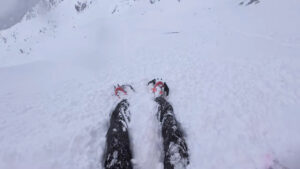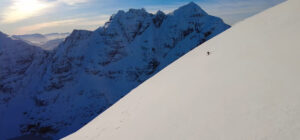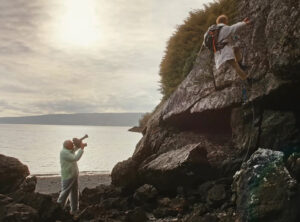It began as a review of a film.
Our intrepid writer, Andrew McLemore, sat down to complete his latest assignment for world-famous publication ExplorersWeb when he found himself in a puzzling situation: This short documentary about bikepacking in the Balkans was presented in the style of cinematic auteur Wes Anderson.
The film, The Balkans Mirage: A Journey on Wheels, was quite different from the countless outdoor documentaries that McLemore had covered in his career. None of the adventurous cyclists ever speak. Instead, they are presented as mere characters in a story trying to be as charming as the Balkan villages they explore.

Photo: Screenshot
Indeed, McLemore found himself surprised by the film’s contrast with most documentaries about cycling or other outdoor pursuits. The film avoided long-winded philosophical ramblings about nature’s impact on human consciousness. There wasn’t a single self-congratulatory description of humankind’s ability to “push the limits.”
No, rather than accept those expected trappings, The Balkans Mirage embraced an entirely different set of conceits. Namely, formal narration, symmetrical framing, head-on camera angles, and text slides reminiscent of vintage magazines.
This would be recognizable to any self-respecting cinephile as the style of dollhouse-obsessed director Wes Anderson. In fact, even philistines would recognize it. Anderson’s aesthetic approach had become a source of constant appropriation thanks to the curious behavior of frequenters of the World Wide Web, who use Artificial Intelligence to recreate popular films in his iconic style.
McLemore found himself asking the hard questions: Where does this end? How long can one man’s artistic vision continue to thrive merely by changing the cinematic context? Why do people like this?

Photo: Screenshot
He didn’t have the answers. So he returned to his work, and suddenly found himself writing as though he, too, had become an Andersonian disciple of detached storytelling and overly formal language.
Both journalism and bikepacking had fallen victim to the director’s inescapable style, and neither would ever be the same.






